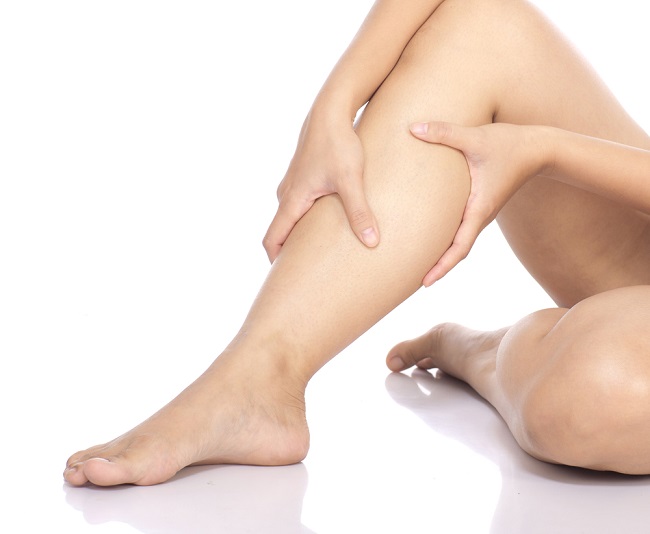High levels of fat or lipids in the blood can cause a person to develop hyperlipidemia, which includes high cholesterol and high triglycerides. This condition is generally not accompanied by symptoms, however, for those of you who do not lead a healthy lifestyle and rarely exercise, this disease should be wary of.
To confirm the condition of hyperlipidemia, a blood test is called a lipid profile or lipid panel examination. Through this examination, it can be known cholesterol and triglyceride levels in the blood.

What is hyperlipidemia and its causes?
Hyperlipidemia means high levels of lipids or fats in the blood, which consist of triglycerides and cholesterol. Cholesterol is further divided into two, namely good cholesterol (HDL-High Density Lipoprotein) and bad cholesterol (LDL-Low Density Lipoprotein).
Triglycerides mainly come from extra calories obtained from foods such as dairy products, fructose and alcohol. Meanwhile, cholesterol can be produced by the liver as well as obtained from foods that contain fat. such as cheese, eggs and meat.
A person is said to have high cholesterol (hypercholesterolemia) if the total cholesterol is more than 200 mg/dL. The amount of triglycerides is also said to be high if the level in the blood exceeds 200 mg/dL.
People who are overweight, eat a lot of fatty foods, consume alcohol, and rarely do exercise, have a higher risk of developing hyperlipidemia.
Supplements for Hyperlipidemia
Taking supplements can be one way to lower cholesterol levels in the blood. Some herbal medicines that can serve as supplements to help lower cholesterol levels include:
- Barley
Based on a study, Barley is able to be one of the supplements to lower total cholesterol levels. In addition, Barley is able to suppress levels of bad cholesterol or LDL in the blood.
- Spinach
A study found that spinach extract had the potential to act as an antioxidant and could be useful in helping to relieve hyperlipidemia. However, this potential still needs to be studied further in humans to be able to clearly identify the benefits.
- Pineapple
The content of bromelain in pineapple is known to have many uses. One of them, is its ability to break down cholesterol in the blood and prevent blockage of blood vessels due to cholesterol plaque.
- Artichoke Extract
Artichoke extract obtained from the leaves, stems, or roots is often used for various kinds of treatment, including lowering cholesterol levels.
- Fish oil
Consumption of fish oil containing polyunsaturated fatty acids (PUFA), namely omega 3 (EPA and DHA), and monounsaturated fatty acids (MUFA), namely omega 6 and omega 9, if balanced with healthy lifestyle changes overcome hyperlipidemia because it can reduce triglyceride levels in the blood.
- Green tea extract
A study shows that green tea can lower bad cholesterol levels and raise good cholesterol levels. This may be because the polyphenol content in green tea can block cholesterol from being absorbed by the intestines, while helping to get rid of it.
Although there are studies that show the efficacy of these natural ingredients to help lower cholesterol levels, further research is still needed on how they work, their effectiveness, and their level of safety.
Changing Lifestyle
Looking at the risk factors for hyperlipidemia, another way to prevent and treat this disease is to change your lifestyle to a healthier one.
These lifestyle changes can be made by:
- Limit fatty foods
Reduce consumption of fatty foods, especially foods that contain saturated fat and trans fat. Some types of food that should be limited include fried foods, fatty red meat, sausages, smoked meats, ice cream, chocolate, butter, potato chips, popcorn, biscuit cakes, and various fast foods.
- Eating healthy food
Consume foods rich in fiber, such as various types of vegetables, fruits, nuts and fish. Then also limit the consumption of foods and drinks that contain sugar so that cholesterol levels in the blood can drop by 10%.
- Doing exercise regularly
At least spend about 40 minutes to exercise, 3 to 4 times a week, can lower cholesterol levels and blood pressure.
- Control your weight
Being overweight or obese tends to increase cholesterol levels in the blood. Therefore, it is recommended to lose weight so that cholesterol levels in the blood can be controlled properly.
- Quit smoking
Smoking habits also seem to have an impact on the amount of cholesterol in the blood. Avoid and stop smoking so that the risk of hyperlipidemia or high cholesterol can be minimized.
Implement a healthy lifestyle and taking supplements may be a step to overcome hyperlipidemia. However, if this method does not treat the hyperlipidemia you are suffering from, your doctor may recommend cholesterol-lowering drugs such as statin drugs, such as simvastatin, or cholestyramine and beta sitsterol, so that cholesterol can be controlled properly. In addition, you should also use supplements in consultation with a doctor.









